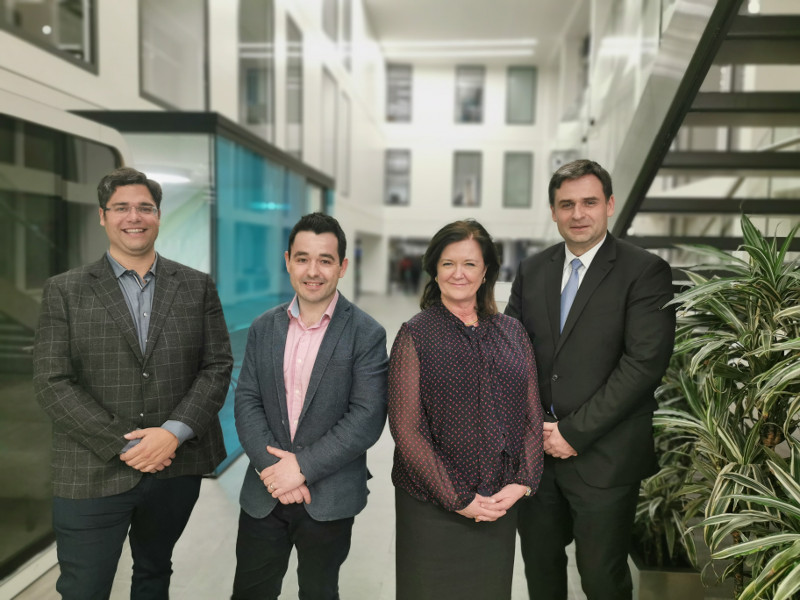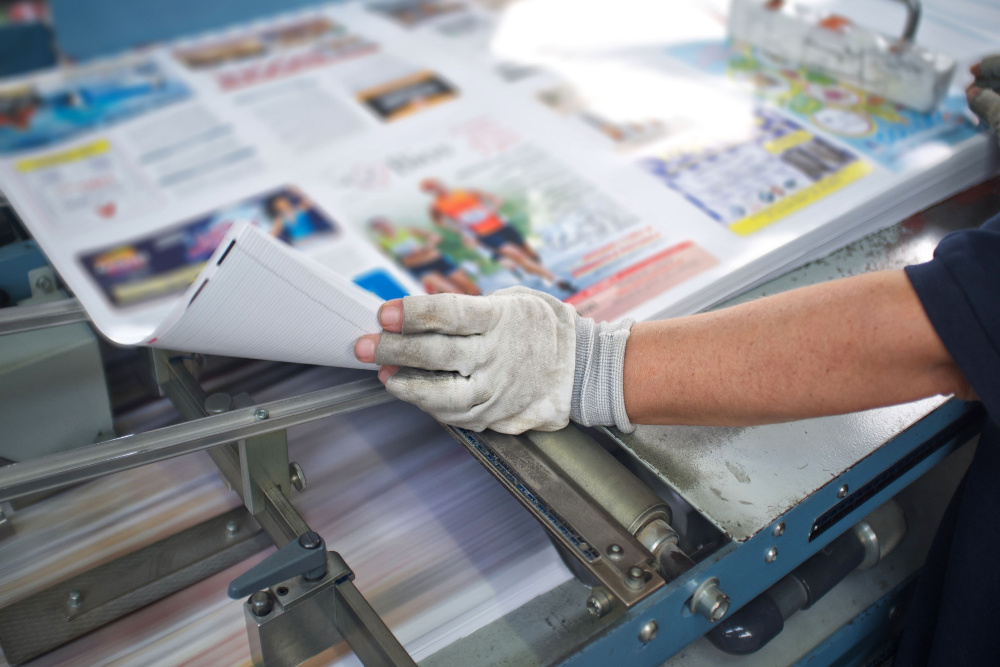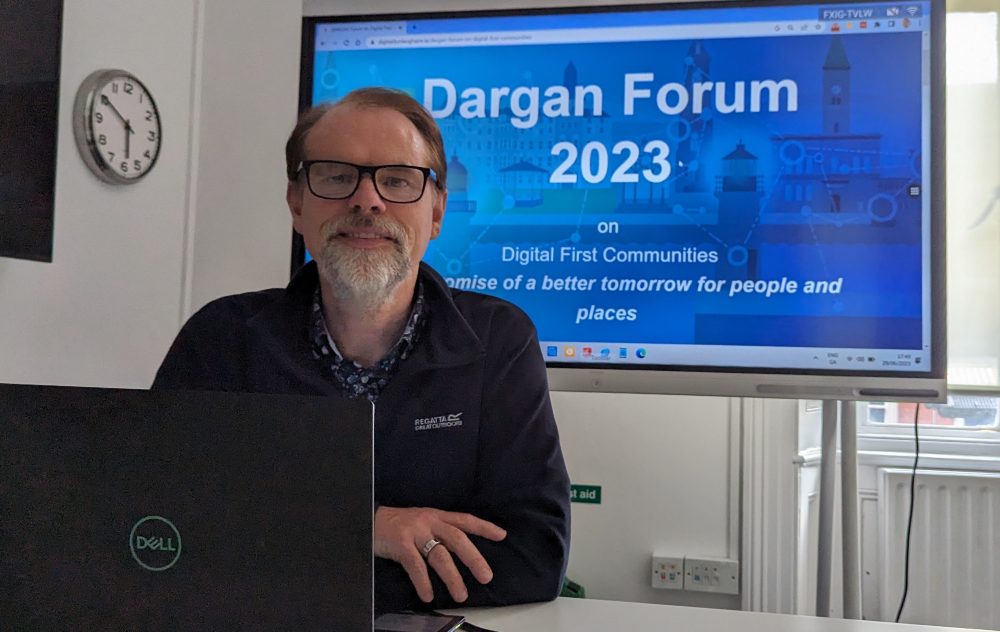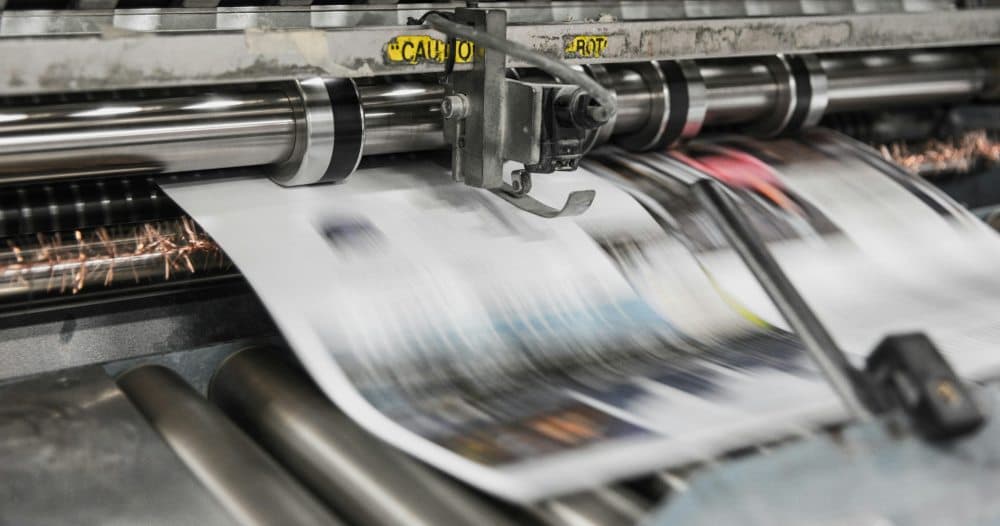Podcast Ep 252: The decline in local news and journalism could lead to the spread of news deserts, warns Ciarán Murray from Olas Foundation.
We talk to Ciarán Murray (pictured) from Olas Foundation, a seasoned veteran of the blockchain industry and a former employee of BSkyB, about what does the future hold for Ireland’s local media sector.
He argues that local media serves as a cornerstone of community life in Ireland, providing trusted news that keeps people together. Today local media continues to be among the most trusted news sources in Ireland, with up to 70% and 69% relying on local newspapers and radio respectively for information.
“The internet democratised content creation but didn’t democratise quality control. What’s missing is the objective voice of traditional media that used to accurately report on local court cases and council meetings, doing the necessary checks and balances”
However, this landscape is swiftly changing. The decline in local journalism across Ireland has sparked concerns about the formation of what Murray terms “news deserts” – areas without professional news services. This decline poses serious threats to community unity and accurate information dissemination.
Digital killed the radio star
According to Murray, economic shifts, such as the transition from print advertising to digital platforms, have eroded traditional revenue streams. Local newspapers and radio stations, once sustained by local advertising, now struggle to compete with tech behemoths like Google and Meta, resulting in numerous closures and consolidations within the industry.
This is supplemented by the digital transformation that has disrupted traditional media models. Many local outlets have failed to adapt to online platforms, rendering them unable to attract younger audiences or generate sufficient digital revenue.
Local media, Murray urges, is pivotal to strengthening communities, enhancing democratic values and civic engagement that lies at the hart of Irish society.
As well as pointing out that business and community leaders share a responsibility to champion local media, through his Olas Foundation he is focused on looking at new digital mechanisms, including blockchain, to fund strong, independent local journalism.
“After graduating from London School of Economics, I worked for BSkyB in media, primarily on the advertising side though they recognised my interest in news. I then moved to the European Commission working in anti-dumping before discovering Bitcoin in 2011. The white paper blew my mind because it combined my interests in economics and computers.
“Within six months, I quit my job and have been buried in the blockchain space ever since.”
The media landscape that we would have known for decades has been decimated and the question is whether new content models driven by social media can be sustained.
“Revenue models have been decimated from multiple angles. First, things newspapers had monopolies over – classified ads, dating ads, specialised content – were splintered into specialist apps. Then, as internet traffic consolidated through massive hubs like Google and Facebook, they began demanding shares of advertising revenue. Larger publications responded by adopting subscription models, but local newspapers lack the marketing firepower to make this work, and consumers are experiencing subscription fatigue.”
The spread of news deserts
So what could happen if local news outlets like newspapers and radio stations became unsustainable?
“We’re seeing areas develop that have zero local news coverage – what we call news deserts. Research from the US shows that when local news disappears or loses capacity to hold local governments accountable, government borrowing costs increase, corruption levels rise, and there’s less competition for mayoral races and government positions. It has a wide-ranging negative impact on civil society.”
And yet, local news remains the most trusted source of information for people.
“Local news is closer to its communities, making it harder to spread misinformation. The community can directly verify what’s happening, which is why about 70% of people still rely on local radio and 69% on local newspapers for information. However, these trusted sources are becoming economically unviable in many parts of the world.
“While local social media groups can be useful, they often become filled with inaccurate information and mud-slinging. The internet democratised content creation but didn’t democratise quality control. What’s missing is the objective voice of traditional media that used to accurately report on local court cases and council meetings, doing the necessary checks and balances.”
The Olas Foundation that Murray leads is focused on finding a sustainable model for quality local journalism.
“We’re trying to do several things with media, but a key component is giving everyone editorial review powers. If the internet gave everyone a printing press, we’re trying to give everyone quality control capabilities. We want to open up media to a more competitive landscape while maintaining or exceeding traditional journalistic standards.”
The issue of who pays for that news could be solved potentially with blockchain. “For small payments, it will function like online cash. On our platform, if you read an article and want to tip the journalist, you could easily send 10 or 20 cents with minimal friction – similar to liking a post on social media.
“Wikimedia gets 2% of its readers to donate and takes in $200m annually. We believe we can increase that donation rate to 20%-to-30% by reducing friction and enabling micro-payment tips. If journalists get tips from even 20% of their readers, and most of that money goes directly to them because they’re working for themselves on an open publishing platform, journalism could become financially viable again.”
I counter that important roles like investigative journalism are expensive, would the model support that? “We’re also developing a pre-funding model where journalists can propose stories to their community. Using a system called quadratic funding, if a journalist raises money from multiple small donors, that amount gets matched by a larger pot funded by institutions like governments or businesses. The matching happens in a neutral way where these larger entities can’t sway what’s written – the community decides what gets funded.
“This gives journalists financial security upfront so they can focus on substantive reporting without worrying about clicks. We’ll also have curators who help distribute content, potentially taking a small percentage – but nowhere near what traditional publishers take.
“Anyone can sign up initially, but it’s all performance-based. If you’re producing poor journalism, lying, or writing badly, you’ll get bad scores. This reputation follows you, making it harder to get funding in future quadratic funding competitions.
“We’ve spent about four months designing mechanisms to prevent gaming the system – proof-of-human protocols so you can’t create thousands of accounts, anti-bribery protocols, and pairwise voting systems to prevent the same groups consistently pushing certain narratives.
“We spent about a year in stealth mode designing these intricate market mechanisms. Now we’re battle-testing those algorithms and coding them. We’re probably at least a year away from a full version one launch, but we’ll release smaller test networks in the meantime, including a competition for readers to judge opinion articles starting in May 2025.”
I point out to Murray that we live in a world where arguments over left or right seem to matter more than right or wrong, and that the truth is a casualty.
“In today’s world, where someone can get elected based on lies and people easily fall into algorithmic echo chambers, we need to reimagine the economic model of how we supply quality journalism. If private business models aren’t working, we need to think of journalism as a public good – something we all want and need, but that the marketplace as currently structured can’t deliver.”
-
Bank of Ireland is welcoming new customers every day – funding investments, working capital and expansions across multiple sectors. To learn more, click here
-
For support in challenging times, click here
-
Listen to the ThinkBusiness Podcast for business insights and inspiration. All episodes are here. You can also listen to the Podcast on:
-
Spotify
-
SoundCloud
-
Apple






